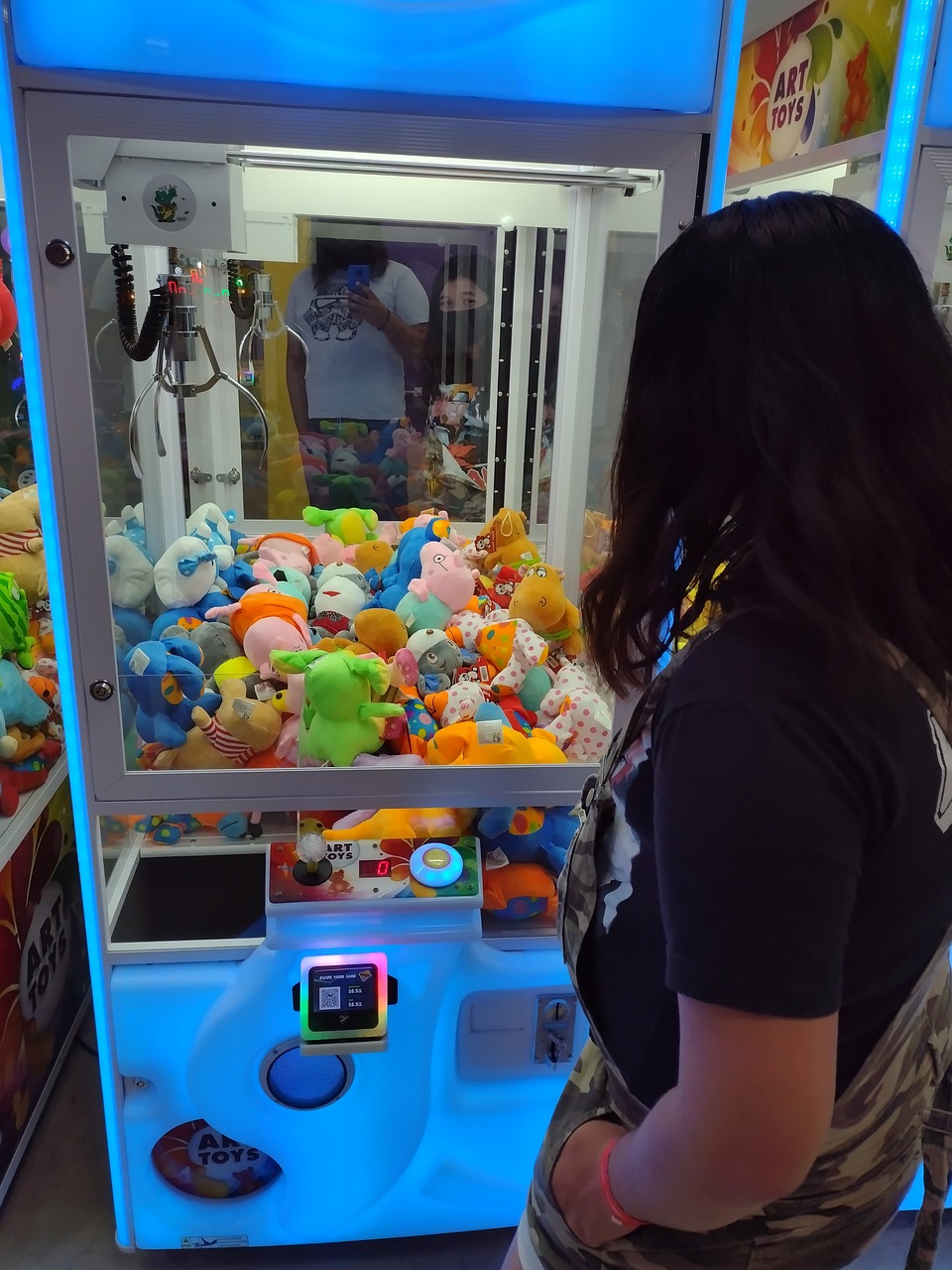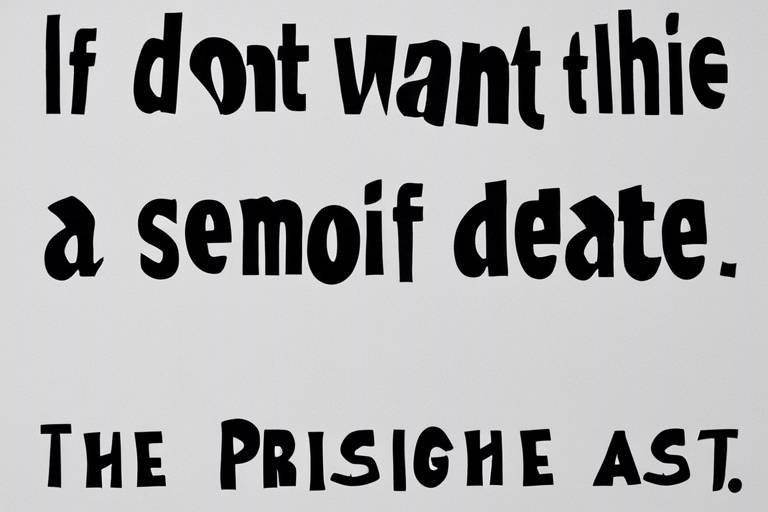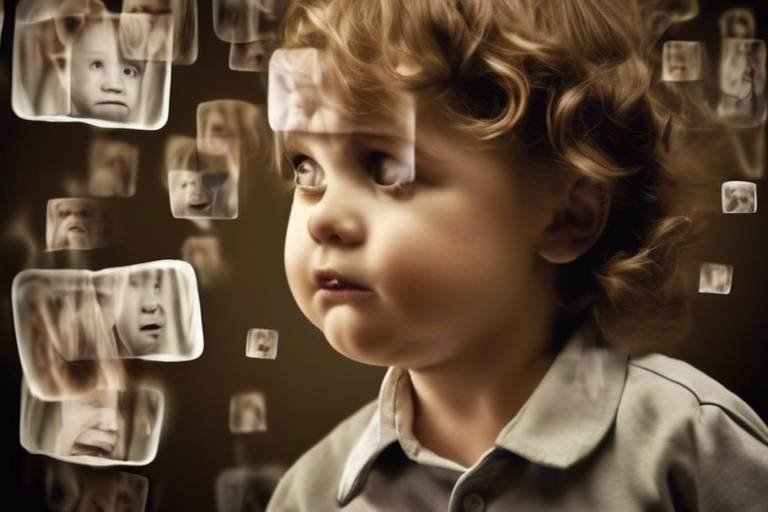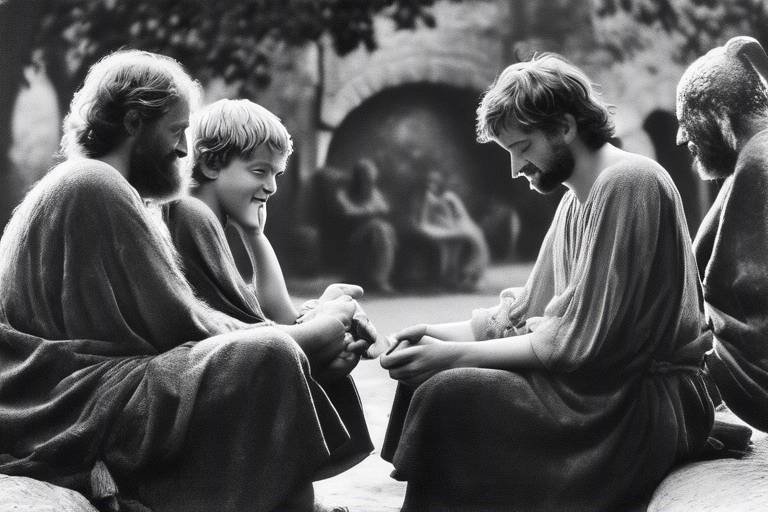The Concept of Persona in Carl Jung's Philosophy
In the realm of psychology, few concepts are as profound and multifaceted as the persona, a term popularized by the renowned Swiss psychiatrist Carl Jung. This idea serves as a gateway to understanding not just the psyche of an individual but also the intricate dance between our inner selves and the world around us. Imagine the persona as a carefully crafted mask that we don each day, tailored to fit the expectations of society and the roles we play. It’s that charming smile you wear at a party, the professional demeanor you adopt at work, or even the playful banter you engage in with friends. But beneath this mask lies a deeper, often hidden self—one that is rich with emotions, fears, and desires. In this article, we will delve into the significance of the persona in Jungian psychology, exploring its role in identity formation, social interactions, and the delicate balance between our true selves and societal expectations.
Understanding the persona is crucial in Jungian philosophy. At its core, the persona represents the social mask individuals wear, reflecting how they wish to be perceived by others while concealing their true self. It acts as a protective shield, allowing us to navigate the complexities of social life while maintaining a semblance of control over how we are viewed. However, this mask can often become a double-edged sword. While it helps us fit in, it may also lead to a disconnection from our authentic selves. The persona is not inherently negative; it’s a necessary part of social existence. Yet, the challenge lies in recognizing when this mask becomes a barrier rather than a bridge.
The persona plays a significant role in shaping individual identity. It influences how people navigate their social environments and interact with others, often leading to a complex relationship with their true selves. Think of the persona as a stage on which we perform our daily lives. Each interaction, whether with friends, family, or colleagues, requires us to adopt a specific role, which can sometimes obscure our genuine feelings and thoughts. This can create a dissonance between who we are and who we present to the world, raising the question: How much of our true selves are we willing to sacrifice for acceptance?
The persona is heavily influenced by societal norms and expectations. From a young age, we learn to adapt our behaviors based on feedback from those around us, leading to the development of a persona that aligns with external pressures. This can manifest in various ways, including:
- Conforming to cultural ideals of success and beauty
- Adopting behaviors that are deemed acceptable within specific social groups
- Suppressing traits that may be viewed as undesirable or unconventional
As we navigate these social landscapes, the persona becomes a tool for survival, but it can also create a façade that masks our true identities. The challenge lies in finding a balance between societal acceptance and personal authenticity.
Cultural context plays a vital role in the development of the persona. Different societies have unique expectations and norms that shape how individuals express themselves. For instance, in collectivist cultures, the persona may emphasize community and family values, while in more individualistic societies, personal achievement and self-expression might take precedence. This cultural lens not only influences our behaviors but also the very fabric of our identities. Understanding these nuances can help us appreciate the diversity of human experience and the various ways we construct our personas.
As individuals grow and experience life changes, their personas may evolve. From childhood to adulthood, our roles shift, and so do our social masks. Major life events, such as starting a new job, entering a relationship, or becoming a parent, can prompt significant transformations in how we present ourselves to the world. This evolution can be both liberating and challenging, as we navigate the expectations that come with each new phase of life. It raises the question: Are we evolving our personas to reflect our true selves, or are we merely adapting to external pressures?
Over-identification with the persona can lead to psychological issues. When individuals become too attached to their social masks, they risk losing touch with their authentic selves. This can lead to feelings of emptiness, anxiety, and even depression. The persona, while useful, can become a prison if we allow it to define us completely. Acknowledging the persona's role is crucial, but so is recognizing its limitations. It’s essential to find ways to peel back the layers and reconnect with our true selves.
In Jungian theory, the shadow represents the unconscious aspects of the self. This subheading explores the dynamic between the persona and the shadow, highlighting the importance of integrating both for personal growth. The shadow often contains traits and desires that we may be ashamed of or choose to ignore. By confronting and integrating these aspects, we can achieve a more holistic understanding of ourselves.
The shadow can significantly impact how the persona is expressed. Unacknowledged traits can distort social interactions, leading to misunderstandings and conflicts. When we suppress parts of ourselves, they often manifest in unexpected ways, sometimes even through projection onto others. Recognizing this influence can help us navigate our relationships more effectively and foster deeper connections.
Achieving psychological wholeness involves reconciling the persona with the shadow. Strategies for integration include self-reflection, therapy, and creative expression. By embracing all facets of ourselves, we can cultivate a more authentic existence, allowing our true selves to shine through. This journey toward integration can be challenging, but it’s ultimately rewarding, leading to a richer, more fulfilling life.
- What is the persona in Jungian psychology?
The persona is the social mask we wear, shaped by societal expectations and norms. - How does the persona influence identity?
The persona plays a crucial role in shaping how we interact with others and how we see ourselves. - Can the persona change over time?
Yes, the persona can evolve as individuals experience different life stages and societal pressures. - What is the relationship between the persona and the shadow?
The persona and shadow are interconnected; integrating both is essential for achieving psychological wholeness.

The Definition of Persona
Understanding the persona is crucial in Jungian philosophy. Imagine walking into a party, and the first thing you do is put on a mask. This mask isn't just a physical object; it's a representation of how you want others to see you. In essence, the persona is the social mask individuals wear, reflecting how they wish to be perceived by others while concealing their true self. This concept is not just about deception; it's about survival in a society that often demands certain behaviors and appearances.
The persona serves several important functions in our lives. For one, it helps us navigate complex social landscapes. Think of it as your social armor—protecting your vulnerabilities while allowing you to interact with others comfortably. However, this mask can also lead to confusion about who we really are. When we become too attached to our persona, we may find ourselves lost, struggling to reconcile our true feelings and desires with the image we project to the world.
Moreover, the persona is heavily influenced by societal norms and expectations. Every culture has its own set of rules about how individuals should behave, dress, and interact. This means that the persona can vary widely from one culture to another. For example, in some cultures, being assertive is seen as a strength, while in others, it might be perceived as rude or aggressive. This cultural lens shapes our personas and can lead to a disconnection from our authentic selves.
To illustrate this, consider the following table that outlines the differences in persona across various cultures:
| Cultural Context | Persona Characteristics |
|---|---|
| Western Cultures | Emphasis on individualism and self-expression |
| Eastern Cultures | Focus on collectivism and harmony within the group |
| Indigenous Cultures | Connection to community and tradition |
As you can see, the persona is not a one-size-fits-all concept. It is a dynamic and evolving aspect of our identity that changes based on context, experience, and cultural background. Understanding this can lead to greater self-awareness and a more authentic way of living. In the end, the goal is to strike a balance between the persona we present to the world and our true selves, allowing for a more genuine connection with others.

The Role of Persona in Identity Formation
When we think about identity, we often picture a unique tapestry woven from our experiences, beliefs, and aspirations. However, lurking beneath this intricate design is the persona, a crucial thread that influences how we perceive ourselves and how others perceive us. The persona is not just a mask we wear; it is deeply intertwined with our identity formation, acting as a bridge between our inner selves and the outer world. Think of it as the public face we show to society, carefully crafted to navigate social landscapes while concealing the more vulnerable aspects of our true selves.
As we interact with others, our persona helps us communicate our values and beliefs, shaping the way we are understood in various social contexts. For instance, in a professional setting, one might adopt a more formal persona, emphasizing traits like competence and reliability. Conversely, in a casual environment with friends, the persona might shift to reflect a more relaxed and humorous side. This adaptability is essential, as it allows us to meet the expectations of different social roles while simultaneously influencing our self-concept.
However, this dynamic can lead to a complex relationship with our true selves. The persona can sometimes overshadow our authentic identity, creating a disconnect between who we are and who we present to the world. Imagine a performer on stage, fully immersed in their role, yet feeling a sense of emptiness when the curtain falls. This scenario illustrates how the persona can dominate our interactions, leading to feelings of alienation and confusion about our true identity.
Additionally, the persona is heavily influenced by societal norms and expectations, which can further complicate our identity formation. In many cases, external pressures dictate the traits we feel compelled to display. For example, cultural stereotypes might push individuals to conform to specific behaviors or appearances, often at the expense of their personal authenticity. This phenomenon raises an important question: Are we truly being ourselves, or merely conforming to the roles society has assigned us?
To illustrate this point, consider the following table that outlines how different social environments can shape our personas:
| Social Environment | Common Persona Traits |
|---|---|
| Workplace | Professional, serious, focused |
| Home | Relaxed, intimate, vulnerable |
| Social Gatherings | Outgoing, humorous, engaging |
| Online Platforms | Curated, idealized, sometimes exaggerated |
This table highlights how our personas can shift dramatically based on the context in which we find ourselves. While this flexibility can be beneficial, it also underscores the importance of self-awareness in understanding how our personas influence our identity.
Ultimately, the role of the persona in identity formation is a double-edged sword. While it enables us to navigate social situations effectively, it can also lead to a fragmented sense of self if we become too attached to these social masks. Finding a balance between the persona and our authentic selves is crucial for personal growth and fulfillment. So, how do we strike this balance? It begins with self-reflection and a willingness to explore the deeper aspects of our identity beyond the facade we present to the world.
- What is the persona in Jungian psychology? The persona is the social mask we wear, representing how we wish to be perceived by others.
- How does the persona affect identity? The persona shapes our interactions and influences our self-perception, often leading to a disconnect with our true selves.
- Can the persona evolve over time? Yes, as we grow and experience life changes, our personas can evolve to reflect new roles and identities.
- What are the dangers of over-identifying with the persona? Over-identification can lead to psychological issues, including feelings of emptiness and a lack of authenticity.
- How can I integrate my persona and true self? Self-reflection and exploring the deeper aspects of your identity are key to reconciling these elements.

The concept of persona is intricately woven into the fabric of our social interactions, acting as a lens through which we view ourselves and how we believe others perceive us. It's like wearing a costume in a play; while the character may be vibrant and engaging, it often masks the true identity of the actor underneath. This social mask is not merely a facade; it is heavily influenced by the expectations of society. From a young age, we are bombarded with messages about how to behave, what to aspire to, and who we should be. These societal norms shape our personas, compelling us to conform to certain roles that may not necessarily align with our authentic selves.
Consider this: when you step into a job interview, how do you present yourself? You likely adjust your demeanor, attire, and even your speech to fit what you think the interviewer expects. This adaptability is a testament to the power of social expectations in crafting our personas. However, this constant adjustment can lead to a disconnect between who we are and who we portray ourselves to be. We might find ourselves asking, "Am I being true to myself, or am I just playing a part?" This internal conflict can be quite unsettling, and it highlights the delicate balance we must maintain between societal acceptance and personal authenticity.
Moreover, the expectations placed upon us vary significantly across different contexts—what's acceptable in a corporate setting may be entirely different from what is expected in a casual gathering with friends. These nuances create a complex web of personas that we navigate daily. For instance, a person might adopt a more serious persona at work, while embodying a carefree, humorous self among friends. This duality can sometimes lead to confusion and stress, as individuals struggle to reconcile these different aspects of their identity.
To illustrate the impact of social expectations on persona, consider the following table that outlines various contexts and their corresponding persona adaptations:
| Context | Expected Persona | Potential Internal Conflict |
|---|---|---|
| Workplace | Professional, Serious | Feeling inauthentic, stressed |
| Social Gatherings | Fun, Outgoing | Pressure to entertain, maintain energy |
| Family Events | Supportive, Nurturing | Balancing personal beliefs with family expectations |
The pressure to conform can be overwhelming, leading many to prioritize their persona over their true self. This phenomenon raises an important question: how do we find a balance? One approach is to engage in self-reflection, asking ourselves what parts of our persona align with our true identity and which are simply adaptations to fit in. By becoming aware of these influences, we can begin to peel back the layers of our social masks, allowing our authentic selves to shine through.
In conclusion, the relationship between persona and social expectations is a complex dance that many of us perform daily. While it can be beneficial to adapt our personas to fit different social contexts, it is equally important to remain grounded in our true selves. Finding that balance may take time and effort, but it is crucial for fostering genuine connections with others and achieving personal fulfillment.
- What is the persona in Jungian psychology? The persona is the social mask individuals wear, reflecting how they wish to be perceived by others.
- How does societal expectation influence our persona? Societal norms and expectations shape the persona by dictating how individuals should behave in various contexts.
- Can over-identification with the persona lead to psychological issues? Yes, becoming too attached to one's social mask can result in a disconnection from the true self, leading to stress and identity crises.

Understanding the concept of persona becomes even more fascinating when we consider its manifestation across various cultures. Each culture has its own set of norms, values, and expectations that shape how individuals present themselves to the world. For instance, in collectivist societies, such as many Asian cultures, the persona is often centered around group harmony and social roles. Here, individuals may adopt personas that prioritize community over self, reflecting values such as respect, conformity, and familial duty. This can lead to a persona that emphasizes collective identity rather than personal expression.
On the other hand, in more individualistic cultures, like those found in Western societies, the persona may be more focused on personal achievement and self-expression. Here, individuals might cultivate a persona that highlights their unique traits and accomplishments, often striving to stand out in a crowd. This divergence illustrates how cultural contexts can dictate not just the content of our personas but also the underlying motivations that drive them.
Moreover, the persona can also vary within subcultures, where specific groups develop their own norms and expectations. For example, the persona of a teenager in a skateboarding community might be vastly different from that of a corporate professional. In each case, the persona serves as a tool for navigating social landscapes, allowing individuals to fit in or stand out as they see fit.
To illustrate this further, let's take a look at a comparison of how different cultures approach the concept of persona:
| Cultural Context | Persona Characteristics |
|---|---|
| Collectivist Cultures (e.g., Japan, China) | Emphasis on group harmony, conformity, and social roles |
| Individualistic Cultures (e.g., USA, Canada) | Focus on personal achievement, self-expression, and uniqueness |
| Subcultures (e.g., Teenagers, Artists) | Distinct norms and values that shape unique personas |
As we can see, the interplay between culture and persona is intricate and multifaceted. The persona is not merely a facade; it is a reflection of the values and beliefs that individuals internalize from their cultural environments. This leads to a rich tapestry of identities, where the persona can shift and adapt depending on the social context. Understanding these cultural nuances is essential for anyone looking to delve deeper into the complexities of identity formation and the various masks we wear in our daily lives.
- What is the persona in Jungian psychology? The persona is the social mask that individuals wear, representing how they wish to be perceived by others while concealing their true self.
- How does culture influence the persona? Cultural norms and values shape the persona by dictating the roles individuals adopt and the traits they emphasize or suppress.
- Can the persona change over time? Yes, as individuals grow and experience life changes, their personas can evolve to reflect new social contexts and personal insights.
- What are the dangers of over-identifying with the persona? Over-identification with the persona can lead to a disconnection from one's true self, causing psychological issues and a lack of authenticity.

The evolution of persona is a fascinating journey that reflects our growth and adaptation as individuals. As we traverse through various stages of life, our personas are not static; they are dynamic entities that change in response to our experiences, relationships, and the world around us. Think of the persona as a wardrobe that we continually update, adding new outfits while sometimes discarding those that no longer fit. This metaphor illustrates how our social masks can evolve to mirror our changing identities and circumstances.
From childhood to adulthood, our personas are shaped by a multitude of factors. In our formative years, we often adopt personas based on parental expectations and societal norms. During adolescence, the quest for identity can lead to experimentation with different personas as we seek to fit in or stand out among peers. This period can be tumultuous, as we grapple with conflicting desires to conform and express our individuality.
As we transition into adulthood, the persona often becomes more refined, influenced by career choices, relationships, and life experiences. For instance, someone may adopt a professional persona that emphasizes competence and confidence while hiding vulnerabilities. This duality can create a complex interplay between who we are and who we portray ourselves to be. It's essential to recognize that while adapting our personas can be beneficial for social acceptance, it can also lead to a disconnection from our true selves.
Life events, such as marriage, parenthood, or personal crises, can further catalyze changes in our personas. Each experience can add layers to our social mask, sometimes leading to a richer, more nuanced identity. However, these transformations can also pose challenges. For example, a person who has always been seen as the "strong one" may struggle to show vulnerability if they have built their persona around invulnerability. This can lead to internal conflict, where the individual feels trapped by the very identity they have constructed.
Moreover, the evolution of persona is not just a personal journey; it is also influenced by cultural and societal shifts. For instance, the rise of social media has introduced new dimensions to how we curate our personas. Online platforms allow for the creation of idealized versions of ourselves, often leading to a disconnect between our online and offline identities. This phenomenon raises important questions about authenticity and the potential psychological toll of maintaining these curated personas.
In summary, the evolution of persona over time is a complex interplay of personal growth, societal expectations, and cultural influences. As we navigate through different life stages, it is crucial to remain aware of the personas we adopt and how they reflect our true selves. Embracing the fluidity of our identities can lead to greater authenticity and fulfillment, ultimately allowing us to integrate our evolving personas with our deeper selves.
- What is the persona in Jungian psychology?
The persona is the social mask or facade that individuals present to the world, shaped by societal expectations and personal identity. - How does the persona evolve over time?
The persona evolves through life experiences, cultural influences, and personal growth, reflecting changes in identity and social roles. - What are the dangers of over-identifying with one's persona?
Over-identification with the persona can lead to disconnection from the true self, potential psychological issues, and an inability to express authentic emotions. - How can one integrate their persona and shadow?
Integration involves acknowledging and accepting both the persona and shadow aspects of oneself, fostering a more authentic and holistic identity.

In the intricate dance of life, the persona often takes center stage, dazzling others with its charm and charisma. However, when individuals become overly identified with this social mask, they may unknowingly step into a trap that can lead to significant psychological distress. Imagine wearing a costume so tightly fitted that it becomes impossible to breathe—this is akin to what happens when the persona overshadows the true self. The persona, while essential for social interaction, can morph into a double-edged sword when it becomes the sole representation of one's identity.
One of the primary dangers of over-identifying with the persona is the loss of authenticity. When individuals focus solely on how they wish to be perceived, they often suppress their genuine feelings, thoughts, and desires. This suppression can lead to a disconnection from their true selves, resulting in feelings of emptiness or even depression. It’s like living in a beautifully decorated house that feels empty inside; it may look good from the outside, but it lacks the warmth and comfort of true authenticity.
Moreover, an over-identified persona can create a facade that is difficult to maintain. The pressure to uphold this image can lead to chronic stress and anxiety. People may find themselves constantly worried about how they are perceived, leading to a cycle of self-doubt and insecurity. In this context, the persona becomes a prison rather than a protective shield. For instance, someone who presents themselves as confident and successful might feel an overwhelming fear of being exposed as insecure or struggling, which can lead to a profound sense of isolation.
Additionally, this dissonance can affect relationships. When individuals are more invested in their persona than in their authentic selves, they may struggle to form genuine connections with others. Relationships built on superficial interactions can feel shallow and unfulfilling. Imagine trying to build a house on a shaky foundation; it may stand for a while, but it’s bound to collapse eventually. Similarly, relationships based solely on personas are often fragile and may crumble under pressure.
It's crucial to recognize the signs of over-identification with the persona. Here are some indicators:
- Constantly seeking validation: If you find yourself needing approval from others to feel good about yourself, it may be a sign that your persona is overshadowing your true self.
- Feeling drained after social interactions: If socializing feels like a performance rather than a genuine connection, it could indicate that you are too focused on your persona.
- Difficulty expressing true emotions: If you struggle to share your authentic feelings because you fear judgment, your persona may be taking over your emotional landscape.
In conclusion, while the persona serves a vital role in navigating social landscapes, it’s essential to strike a balance. By acknowledging and integrating our true selves with our social masks, we can cultivate a more authentic and fulfilling life. Just like a well-tended garden, our identities flourish best when both the persona and the true self are nurtured and allowed to coexist harmoniously.
1. What is the persona in Jungian psychology?
The persona is the social mask that individuals wear, reflecting how they wish to be perceived by others while concealing their true self.
2. How can over-identifying with the persona affect mental health?
Over-identifying with the persona can lead to feelings of emptiness, chronic stress, anxiety, and difficulties in forming genuine relationships.
3. What are the signs of an over-identified persona?
Signs include constantly seeking validation, feeling drained after social interactions, and difficulty expressing true emotions.
4. How can one integrate the persona and the true self?
Integrating the persona with the true self involves self-reflection, acknowledging genuine feelings, and fostering authentic connections with others.

In Jungian psychology, the relationship between the persona and the shadow is a fascinating yet complex dynamic that plays a crucial role in personal development. The persona, as we have discussed, is the social mask that individuals wear, crafted to meet societal expectations and to present a curated version of themselves to the world. On the other hand, the shadow consists of the unconscious aspects of the self—traits, desires, and emotions that are often repressed or ignored because they conflict with the persona.
Imagine the persona as a beautifully crafted stage costume, designed to impress the audience and fit into the narrative of societal norms. In contrast, the shadow is the backstage area, filled with discarded props and hidden truths that the performer is reluctant to acknowledge. This metaphor illustrates the struggle many individuals face: the desire to be accepted while simultaneously grappling with the parts of themselves they deem unacceptable.
The interplay between persona and shadow is not just a psychological concept; it has real implications for our everyday lives. When we over-identify with our persona, we risk becoming disconnected from our true selves. This disconnection can lead to a range of psychological issues, including anxiety and depression. The more we suppress our shadow, the more it tends to manifest in unhealthy ways, often sabotaging our social interactions and personal relationships.
For instance, someone who presents themselves as overly confident and successful may actually harbor deep insecurities and fears of failure within their shadow. This internal conflict can create a significant amount of stress and lead to feelings of inadequacy when the persona fails to align with reality. Recognizing this disparity is the first step toward integrating the two aspects of the self.
Furthermore, the shadow can influence how the persona is expressed. When we fail to acknowledge our shadow, we may project its unacknowledged traits onto others. This projection can distort our social interactions, leading to misunderstandings and conflicts. For example, if someone has not come to terms with their own aggression, they might perceive others as hostile or confrontational, thus reacting defensively and perpetuating a cycle of conflict.
Understanding the relationship between persona and shadow is essential for achieving psychological wholeness. By integrating these two aspects, individuals can foster a more authentic self. This journey requires courage and self-reflection, as it involves facing uncomfortable truths about ourselves. However, the rewards are immense: a deeper understanding of oneself, improved relationships, and a more fulfilling life.
In summary, the relationship between the persona and the shadow is a dance of light and dark, acceptance and rejection. By acknowledging and integrating both, we can move toward a more authentic existence, where our social masks no longer dictate our reality. The journey toward this integration is ongoing, but it is one that leads to profound personal growth and self-acceptance.
- What is the persona in Jungian psychology?
The persona is the social mask individuals wear, representing how they wish to be perceived by others while concealing their true self.
- What is the shadow in Jungian psychology?
The shadow consists of the unconscious aspects of the self, including traits and emotions that are often repressed.
- How do the persona and shadow interact?
The persona and shadow interact in complex ways, influencing how individuals present themselves and how they perceive others.
- Why is it important to integrate the persona and shadow?
Integrating the persona and shadow leads to greater self-awareness, improved relationships, and a more authentic life.

The relationship between the shadow and the persona is a fascinating aspect of Jungian psychology that reveals much about our social interactions and personal identities. To put it simply, the shadow encompasses the parts of ourselves that we often ignore or suppress—traits, desires, and emotions that society deems unacceptable or undesirable. This hidden side of our personality can have a profound influence on our persona, which is the outward mask we present to the world. Imagine walking around with a backpack filled with rocks; the weight of those rocks represents the unacknowledged aspects of our shadow. The persona is like the shiny, attractive backpack we show off, but it can only hold so much before it becomes unwieldy.
When we fail to acknowledge our shadow, it can distort our persona in various ways. For instance, if someone has a shadow filled with anger and frustration but presents a persona of calmness and serenity, the internal conflict can lead to stress and anxiety. This dissonance often manifests in social situations, where the individual may react unexpectedly or uncharacteristically, revealing glimpses of their shadow. Think of it as a coiled spring; the more you compress it, the more forcefully it will release when finally let go. The shadow, when neglected, can erupt in unexpected ways, leading to misunderstandings and strained relationships.
Moreover, the influence of the shadow can lead to a phenomenon known as projection. This occurs when individuals attribute their own undesirable traits onto others. For example, if someone is struggling with feelings of jealousy, they might accuse their friends of being envious, thus projecting their shadow onto them. This not only distorts their perception of reality but also complicates their social interactions, resulting in a cycle of misunderstanding and conflict. The irony is that by failing to confront our shadow, we inadvertently create barriers in our relationships, making it challenging to connect with others authentically.
In understanding the shadow's influence on the persona, it’s crucial to recognize that the two are not inherently at odds. Instead, they can coexist harmoniously when we allow ourselves to embrace the entirety of our being. By acknowledging our shadows, we can enrich our personas rather than diminish them. This integration process is akin to adding depth to a painting; the more colors you incorporate, the more vibrant and authentic the artwork becomes. In this way, the persona can evolve into a more genuine representation of who we are, allowing for deeper connections with others.
To illustrate the interplay between the shadow and the persona, consider the following table:
| Aspect | Shadow | Persona |
|---|---|---|
| Definition | The unconscious part of the personality containing repressed weaknesses, desires, and instincts. | The outward identity or mask presented to the world, shaped by social expectations. |
| Influence | Can distort perceptions and reactions, leading to projection and conflict. | Reflects how we want to be seen, often masking our true feelings and traits. |
| Integration | Requires self-reflection and acceptance of all parts of oneself. | Can become more authentic and relatable when integrated with the shadow. |
In conclusion, the shadow's influence on the persona is a critical aspect of personal growth and self-awareness. By embracing the shadow, we can cultivate a more authentic persona that fosters genuine connections with others. This journey of integration is not always easy, but it is essential for achieving psychological wholeness and living a fulfilling life.
- What is the shadow in Jungian psychology? The shadow represents the unconscious aspects of our personality that we often ignore or suppress.
- How does the shadow influence our persona? The shadow can distort our persona, leading to unexpected reactions and projection of undesirable traits onto others.
- Can the shadow and persona coexist? Yes, they can coexist harmoniously when we acknowledge and integrate the shadow into our self-understanding.
- What are the benefits of integrating the shadow? Integrating the shadow can lead to a more authentic persona, deeper connections with others, and greater self-awareness.

Achieving psychological wholeness is a journey that requires us to reconcile our persona with our shadow. This integration is not merely an academic exercise; it's a deeply personal endeavor that can lead to profound transformation. Imagine trying to build a house without a solid foundation. Your persona may serve as the exterior walls that everyone sees, but without acknowledging and understanding your shadow—the hidden parts of yourself—your structure will be unstable and prone to collapse. So, how do we embark on this journey of integration?
First and foremost, it’s essential to cultivate self-awareness. This means taking a step back and examining your behaviors, thoughts, and feelings. Ask yourself questions like, “What parts of myself do I hide from others?” or “How do my social interactions reflect my true feelings?” This self-reflection can be uncomfortable, but it is a critical step toward understanding the complexities of your identity. Consider keeping a journal to document these reflections; writing can be a powerful tool for uncovering hidden aspects of yourself.
Next, we can employ techniques to consciously engage with our shadow. One effective method is through active imagination, a technique developed by Jung himself. This involves visualizing your shadow as a character in a dream and engaging in a dialogue with it. What does this shadow figure want to tell you? What fears or desires does it hold? This practice can illuminate the parts of yourself that you might typically ignore or suppress.
Furthermore, it’s crucial to surround yourself with a supportive community. Sharing your journey with trusted friends or a therapist can provide a safe space for exploration. They can offer perspectives that you might not see and help you navigate the complex emotions that arise during this process. Remember, integrating the shadow is not a solitary endeavor; it often requires the insights and encouragement of others.
Lastly, embrace the idea of self-compassion. As you confront your shadow, you may encounter feelings of shame or guilt. It’s vital to remind yourself that everyone has a shadow; it’s a natural part of being human. Rather than judging yourself harshly, practice kindness towards your imperfections. This acceptance allows for a more authentic expression of your persona, one that is not just a mask but a true reflection of your multifaceted self.
In conclusion, integrating your persona and shadow is a transformative process that leads to greater authenticity and personal growth. It requires patience, courage, and a willingness to face the uncomfortable truths about yourself. By fostering self-awareness, engaging with your shadow, seeking support, and practicing self-compassion, you can achieve a harmonious balance between your social mask and your true self. This journey towards wholeness is not just about understanding who you are; it's about embracing all the parts of yourself, even those that may be hidden in the shadows.
- What is the persona in Jungian psychology?
The persona is the social mask individuals wear, representing how they wish to be perceived by others. - How does the shadow influence our persona?
The shadow consists of the unconscious aspects of the self, and it can distort how we present ourselves socially. - Why is integrating the persona and shadow important?
Integration leads to psychological wholeness, fostering a more authentic self and improving personal relationships. - What techniques can help in integrating the persona and shadow?
Techniques include self-reflection, active imagination, and seeking support from trusted individuals.
Frequently Asked Questions
- What is the persona in Jungian psychology?
The persona is essentially the social mask we wear in public. It's how we want others to perceive us, often shaped by societal expectations. Think of it as the character you play in the theater of life, designed to fit in and be accepted by those around you.
- How does the persona influence our identity?
The persona plays a crucial role in shaping our identity by guiding how we interact with others. It helps us navigate social situations but can also create a complex relationship with our true selves. It's like wearing a costume that can sometimes feel more real than who we are beneath it.
- Can the persona change over time?
Absolutely! As we go through different life stages and experiences, our personas can evolve. Just like a butterfly transforms from a caterpillar, our social masks can shift to reflect our growth and changing circumstances.
- What are the dangers of over-identifying with the persona?
When we become too attached to our persona, it can lead to psychological issues, such as anxiety or a sense of emptiness. It's like living in a house of cards; if the facade crumbles, we might find ourselves lost without our constructed identity.
- How does the shadow relate to the persona?
The shadow represents the unconscious aspects of ourselves that we often ignore or suppress. The relationship between the persona and the shadow is dynamic; unacknowledged traits can distort how we present ourselves socially, leading to inauthentic interactions.
- What does it mean to integrate the persona and shadow?
Integrating the persona and shadow involves reconciling the parts of ourselves we show to the world with those we keep hidden. This process fosters a more authentic self, allowing us to embrace our full identity, flaws and all. Think of it as merging two puzzle pieces to complete the picture of who we are.



















